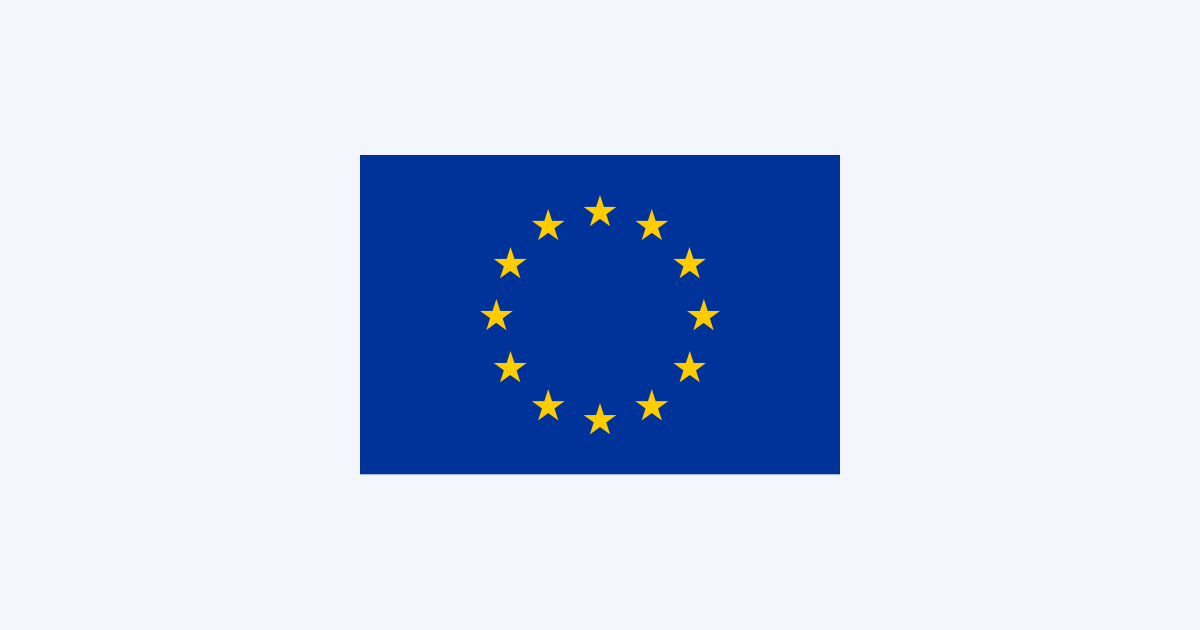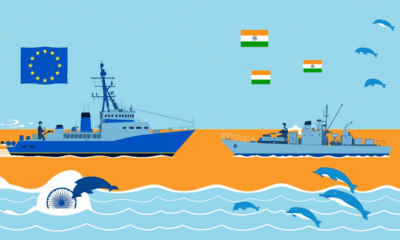Politics
Sudan: Statement by the High Representative on behalf of the European Union marking two years of war

For the past two years, war in Sudan has brutally impacted the lives of millions of civilians. It has dimmed the hopes of the revolution of 2018/19. Fragmentation has deepened along political and ethnic lines. Sudan’s unity and territorial integrity are in peril. The EU is concerned by the intentions expressed by the various actors to form governments unilaterally. A partition of the country must be prevented.
The EU reiterates its strong appeal to the warring parties for an immediate and lasting ceasefire. The responsibility for this war continues to be on the shoulders of the Rapid Support Forces (RSF) and the Sudanese Armed Forces (SAF), as well as their respective affiliated militias. The EU calls on all states supplying arms and funds to the belligerents to cease their support immediately and unite in favour of peace. The EU urges the belligerent parties to negotiate in good faith for a sustainable peace, where territorial integrity, unity and sovereignty are respected. The EU continues to support the African Union’s and other regional and international mediation efforts, including those of the Personal Envoy of the UN Secretary-General for Sudan, Ramtane Lamamra.
The people of Sudan are facing the most catastrophic humanitarian crisis of the XXIst century. Famine has been confirmed and food insecurity is rampant, with almost 25 million people facing acute food insecurity. Sudan is also experiencing the largest protection crisis in the world with 12,6 million people forcibly displaced (more than 3 million across borders). The conflict spilling over into neighbouring countries can cause even greater human suffering and further destabilize the region. Our humanitarian partners will only be able to respond swiftly and fully if safe, rapid and unimpeded humanitarian access (cross-border and cross line) is facilitated by the conflicting parties. The EU and the EU member states continue to demand to all parties at war that all bureaucratic and administrative impediments be lifted immediately and that safety of civilians, including humanitarian workers, be guaranteed.
The culture of impunity must stop. International humanitarian law and human rights violations are rampant and have been recorded throughout the country, in particular in the most conflict-affected areas of Darfur, Khartoum and Al Jazirah. Mass sexual and gender-based violence, starvation, arbitrary killings, child abductions, forced recruitment, and ethnically-based targeted attacks have been used as weapons of war at an unprecedented rate and scale, affecting notably women and children. The EU strongly condemns these severe mass atrocities.
The EU, in close coordination with the international community, will use its diplomatic tools and instruments, including restrictive measures, to seek a peaceful resolution to the conflict and a lasting inter Sudanese inclusive political process reflecting the aspirations of the Sudanese people. The people of Sudan have a right to freedom, peace and justice. The EU supports an inclusive political process towards this goal. The EU commends efforts by the Special Representative for the Horn of Africa, who, on behalf of the member states, will continue to proactively engage with all parties in support of a single mediation effort leading to a ceasefire, increased humanitarian access, and an inclusive transition. The protection of civilians and critical infrastructure remains paramount for our action and the EU is ready to support monitoring mechanisms.
The EU recognises the resilience and bravery of the Sudanese people amidst the worst humanitarian crisis we see today. It is high time to bring an end to this horrific bloodshed.
Politics
EU changes protection status of wolves in Europe

DISCLAIMER OPINIONS: The opinions of the authors or reproduced in the articles are the ones of those stating them and it is their own responsibility. Should you find any incorrections you can always contact the newsdesk to seek a correction or right of replay.
DISCLAIMER TRANSLATIONS: All articles in this site are published in English. The translated versions are done through an automated process known as neural translations. If in doubt, always refer to the original article. Thank you for understanding.
DISCLAIMER PHOTOS: We mostly used photos images that are readily available online, from free sources, or from the people promoting the news. If by any chance it happens that we have used one of your copyrighted photos, please do not hesitate to contact us and we will take it down without question. We do not make profits as this is a not for profit project to give voice to the voiceless while giving them a platform to be informed also of general news, and it is completely free.
Politics
Commission adopts Ocean Pact to protect marine life and strengthen blue economy



DISCLAIMER: Information and opinions reproduced in the articles are the ones of those stating them and it is their own responsibility. Publication in The European Times does not automatically means endorsement of the view, but the right to express it.
DISCLAIMER TRANSLATIONS: All articles in this site are published in English. The translated versions are done through an automated process known as neural translations. If in doubt, always refer to the original article. Thank you for understanding.

– Advertisement –
– Advertisement –
The ocean shapes our economies, our food systems, even the air we breathe. To better protect our ocean, the Commission has adopted a European Ocean Pact, which will help to promote a thriving blue economy and support the well-being of people living in coastal areas.
This Ocean Pact brings together EU ocean policies under one single and coordinated framework. It will do so through a collaborative approach between EU countries, regions, and stakeholders, including fishers, innovators, investors, scientists, and civil society. Six priority areas for action will define this work, namely
- protecting and restoring ocean health by supporting EU countries in their efforts to restore degraded coastal marine habitats
- boosting the competitiveness of the EU sustainable blue economy including by strengthening the EU’s maritime industry and by introducing a Blue Generational Renewal Strategy, to foster access to young professionals in marine research, ocean tech, and sustainable fisheries
- supporting coastal and island communities, and outermost regions by presenting new or updated strategies for these regions and communities
- enhancing maritime security and defence by strengthening EU coast guard cooperation and maritime border security
- advancing ocean research, knowledge, skills and innovation by proposing an ambitious EU Ocean Observation Initiative
- strengthening EU ocean diplomacy and international ocean governance by stepping up its fight against illegal, unreported and unregulated fishing
The European Ocean Pact will be complemented by an ocean act by 2027, which will help to ensure the implementation of the priorities of the pact. An EU Ocean Pact dashboard will be used to track progress.
For more information
Press release: Commission adopts European Ocean Pact for a healthy ocean, a competitive blue economy and thriving coastal communities
More information about the European Ocean Pact
Source link
More from the author
– EXCLUSIVE CONTENT –
Politics
The European Union and the Republic of Moldova confirm their strong partnership at the 9th EU-Moldova Association Council meeting


© FRVS+MPCP 2022. The European Times® News is registered as an EU Trademark. All rights reserved. The European Times® and the logo of The European Times® are EU trademarks registered by FRVS+MPCP.
Members/Partners of

About Us
Popular Category
DISCLAIMER OPINIONS: The opinions of the authors or reproduced in the articles are the ones of those stating them and it is their own responsibility. Should you find any incorrections you can always contact the newsdesk to seek a correction or right of replay.
DISCLAIMER TRANSLATIONS: All articles in this site are published in English. The translated versions are done through an automated process known as neural translations. If in doubt, always refer to the original article. Thank you for understanding.
DISCLAIMER PHOTOS: We mostly used photos images that are readily available online, from free sources, or from the people promoting the news. If by any chance it happens that we have used one of your copyrighted photos, please do not hesitate to contact us and we will take it down without question. We do not make profits as this is a not for profit project to give voice to the voiceless while giving them a platform to be informed also of general news, and it is completely free.
Editor Picks
-
EU & the World4 days ago
Aurora Borealis Forecast: Where & When to See the Northern Lights Tonight
-

 Sports6 days ago
Sports6 days agoChampions League Final 2024-2025: PSG-Inter, official lineups
-

 Sports7 days ago
Sports7 days agoPSG-Inter, Nicolò Barella jokes about Gianluigi Donnarumma
-

 EU & the World5 days ago
EU & the World5 days agoRihanna’s Parents: About Her Late Dad Ronald Fenty & Mom Monica Braithwaite
-

 Sports7 days ago
Sports7 days agoPSG-Inter, Lautaro Martinez unveils recipe for finals
-

 Politics7 days ago
Politics7 days agoEU and India Forge Deeper Maritime Ties with Historic Joint Naval Exercise in the Indian Ocean
-

 Sports5 days ago
Sports5 days agoOfficial: Damien Comolli new general manager of Juventus.
-

 EU & the World6 days ago
EU & the World6 days agoIs Pam Bondi Married? About the Attorney General’s Relationships & Ex-Husbands









